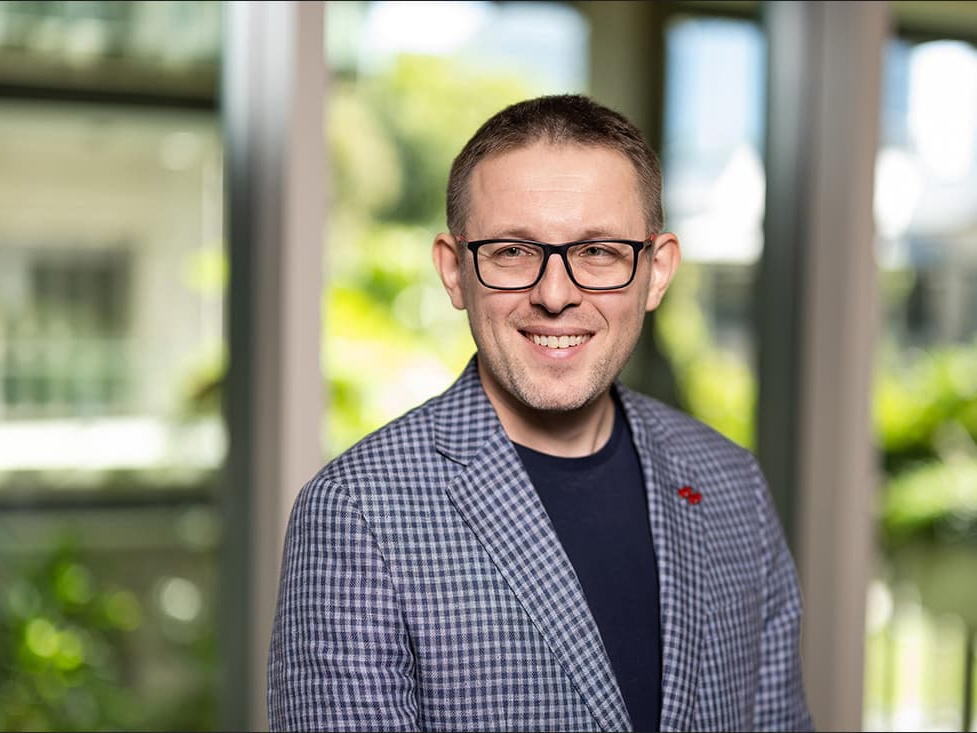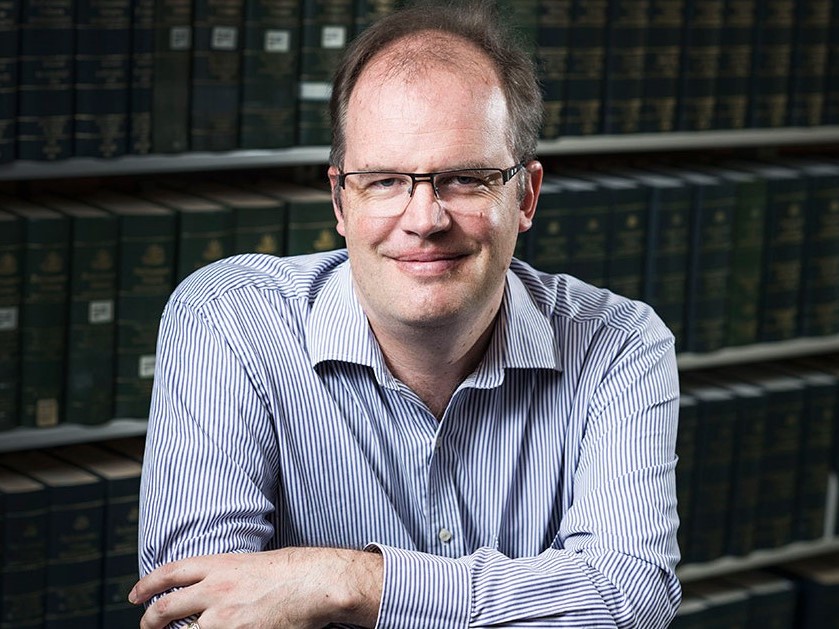Exploring the potential of AI in research
Universities stand as pioneers in embracing AI within research. Join us at the 2024 e-Grad School Global Conference as we investigate real world examples showcasing how AI sparks innovation across many research disciplines.
From drug development to climate change modelling, robotics to genomics, industry to art, experience the transformative power of AI through compelling case studies of research projects. Take a deep dive into the strategies, methodologies, and initiatives universities employ to seamlessly integrate AI into their research practices. Explore how academic institutions adeptly navigate the challenges and opportunities presented by AI, shaping the future of research in dynamic and innovative ways.
Keynote speaker
Professor Marek Kowalkiewicz
Marek Kowalkiewicz is a professor and Chair in Digital Economy at QUT Business School. Listed among the Top 100 Global Thought Leaders in AI by thinkers360, Marek has led global innovation teams in Silicon Valley, was a global research program lead and founding research manager of SAP's machine learning lab in Singapore, and a research fellow at Microsoft Research Asia. His newest book, 'The Economy of Algorithms: AI and the Rise of the Digital Minions', is an international bestseller, also available as an audiobook.

The dual prompts: AI's influence on academic research and creativity
Professor Marek Kowalkiewicz will explore the transformative impact of Generative AI (GenAI) on research and creative processes in academia. Drawing from his book 'The Economy of Algorithms' he will examine the evolving relationship between researchers and AI tools across various disciplines.
The talk will present case studies of AI applications in fields like drug development and climate modelling, demonstrating AI's role as an active collaborator in research. Prof Kowalkiewicz challenges traditional notions of human agency, arguing that while we prompt AI, its pre-trained models and biases reciprocally influence our inquiries.
The keynote will also address how universities are integrating AI into research methodologies and navigating associated ethical considerations. By examining these dual prompts – how we direct AI and how AI guides us – this talk aims to provoke thought on the future of research practice and the dynamics between humans and algorithms in academic innovation.
Conference themes
AI in research practice: case studies
AI is being widely employed in research to drive innovation across a range of fields, including drug development, healthcare diagnostics, natural language processing, reconstruction of artworks, climate change modelling, robotics, financial forecasting, musical compositions, genomics and precision medicine, autonomous vehicles and many more. This conference stream will focus on current case studies of research projects using AI.
Navigating the frontier: universities' approaches to AI in research
Universities are now required to address and navigate the challenges and opportunities being presented by AI in research. This conference stream will explore the strategies, methodologies, and initiatives universities are employing to incorporate AI into their research practices and highlights the dynamic and evolving nature of AI integration in academic settings as universities actively chart new paths to effectively leverage AI in research.
Conference highlights
Engage with keynote speakers
Experts in AI and diverse research domains will illuminate the transformative potential of AI in advancing scientific inquiry.
Explore real world applications
Gain insights into how AI can revolutionise research practices through real-world case studies spanning drug development, healthcare diagnostics, natural language processing, climate change modelling, robotics, and beyond.
Discover cutting edge insights
Uncover the latest advancements in AI methodologies and their versatile applications across disciplines, from healthcare to environmental science.
Learn from success stories
Hear firsthand accounts from researchers who have proudly integrated AI into their projects, driving impactful outcomes and pushing the boundaries of their respective fields.
Chart new paths
Delve into how universities adapt to the evolving AI landscape, from establishing specialised AI research centres to seamlessly integrating AI into existing research workflows.
Navigate ethical considerations
Engage in thought-provoking discussions on the ethical implications of AI in research, including algorithmic bias, data privacy, and the responsible use of AI technologies.
Start connections
Network with fellow researchers, academics, and industry professionals to exchange ideas, foster collaborations, and propel innovation forward.
Transdisciplinary research to battle global sustainability problems
The e-Grad School was excited to deliver its inaugural global conference on November 28, 2023: Transdisciplinary research to battle global sustainability problems. The conference was held online and with no registration fee, fulfilling its aim of attracting conference presenters and registrants from around the world. e-Grad School would like to thank our speakers from New Zealand: Professor Rachel Spronken-Smith, Dr Ray O'Brien; Europe: Professor Tomohiko Sakao (Sweden), Dr Andrew Reeves (UK), Dr Isabel Fletcher (UK); South Africa: Dr Biandri Joubert; and our conference presenters from Australia: Associate Professor Judy Matthews, Dr Katie Woolaston, Dr Matt Rimmer, Dr Rumintha Wickramasekera, Dr Zoe Mellick and Dr Crighton Nichols. The conference also included many new researchers, and we thank our research students for presenting.
The event was opened by conference chair and Graduate Research Education + Development Director Esa Jaatinen, followed by a welcome to the conference by QUT Pro Vice-Chancellor (Research Infrastructure) Professor Stephen Blanksby.
Prof Esa Jaatinen highlighted the main purpose of the conference, the opportunity for current and new eGrad School partners to come together and exchange innovative research ideas and practice case studies on the theme of using transdisciplinary research to battle global sustainability matters.
All conference attendees enjoyed a keynote presentation by Dr Matthew Rimmer, QUT Professor in Intellectual Property and Innovation Law. Dr Rimmer spoke on his work with collaborators and colleagues to produce the forthcoming collection, The Elgar Companion to Intellectual Property and the Sustainable Development Goals, a comprehensive companion bringing together an array of leading international experts to assess and interrogate how IP law impacts each specific SDG in turn.
Throughout the conference, attendees had access to three concurrent sessions with a range of academics and HDRs addressing one of four conference themes. The four conference themes were designed to shine a focus on shaping a more sustainable future, giving voice to researchers from across the globe and making space for future collaborative research projects. The breadth of topics presented at the conference was truly impressive, spanning across various domains and emphasising a transdisciplinary approach to address global sustainability challenges. From transformation of universities, colonisation, food supply chains, a circular plastic economy, artificial intelligence for green infrastructure, to pandemic risk management, mapping floods, climate change, the sustainability of Japanese businesses beyond the 3rd generation, sustainability with yoga, ecological regime shifts in Antarctica - and sustainability and dance in education amongst many other amazing presentations.
All attendees were invited to join a conference closing session, inviting future collaborate efforts to battle global sustainability. Planning is now underway for a second event focusing on the latest usage of AI in research projects, for late 2024.
2023 conference
Watch our conference presentations to learn more about researcher collaboration tackling global sustainability.
2023 keynote speaker
Dr Matthew Rimmer
Dr Matthew Rimmer is a QUT professor in intellectual property and innovation law. He has more than two decades of experience leading and conducting research into intellectual property and sustainable development – including in relation to copyright law and access to knowledge; plain packaging of tobacco products; access to essential medicines; biodiversity protection; and climate change.
He is a chief investigator in the QUT Australian Centre for Health Law Research, the QUT Centre for Behavioural Economics, Society, and Technology (QUT BEST) and in NHMRC Centre of Excellence for Achieving the Tobacco Endgame (CREATE).
Matthew spoke of his collection, The Elgar Companion to Intellectual Property and the Sustainable Development Goals. This comprehensive companion brings together an array of leading international experts to assess and interrogate how IP law impacts each specific SDG in turn.

Contact us
For all e-Grad School enquiries, contact the e-Grad School coordinator.